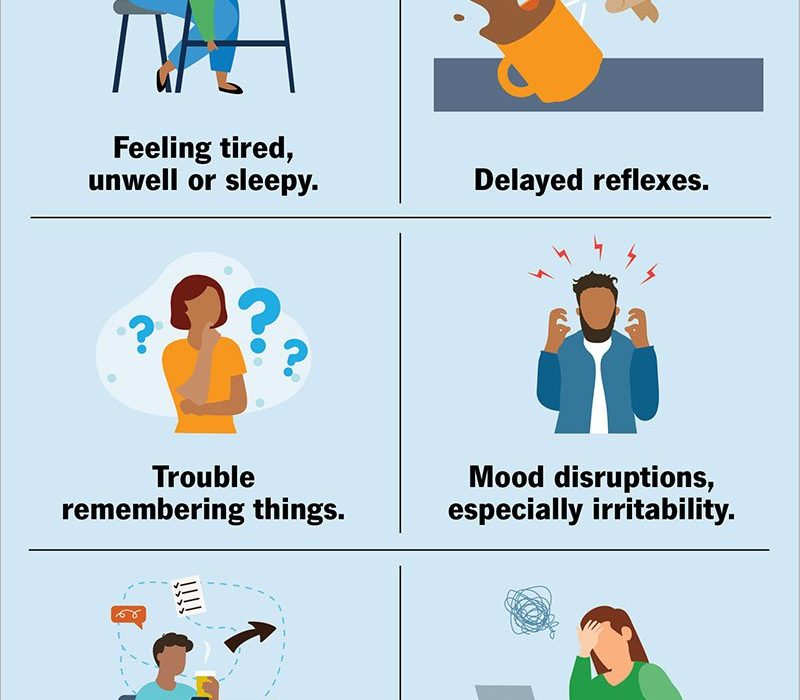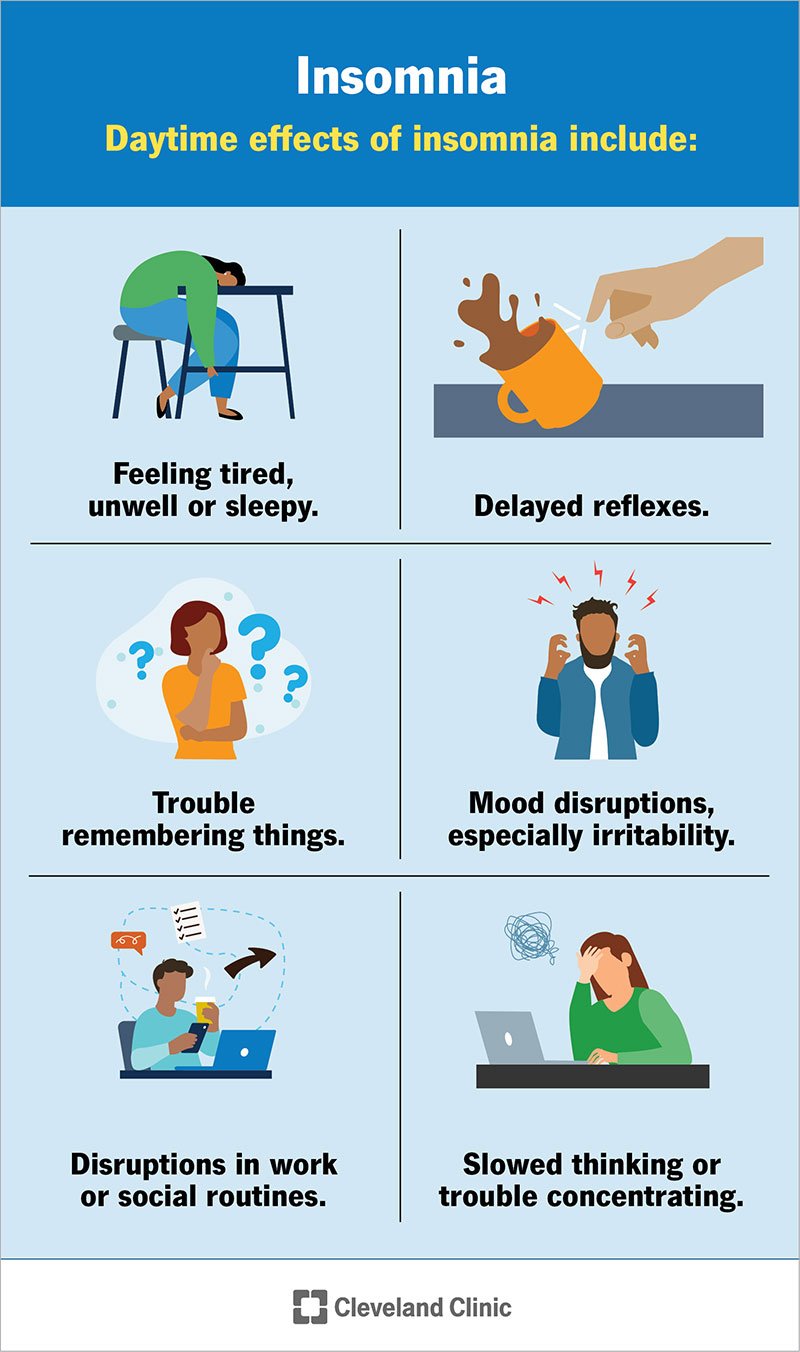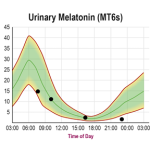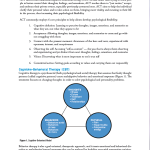Have you ever found yourself tossing and turning at night, unable to fall asleep? Or perhaps you wake up multiple times throughout the night, feeling groggy and unrested in the morning. If so, you may be experiencing a sleep disorder. But what causes sleep disorders? In this article, we will dive into the various factors that can contribute to these disruptive sleep patterns. So, grab a cozy blanket, get comfortable, and let’s explore the intriguing world of sleep disorders together.
When it comes to sleep disorders, there isn’t a one-size-fits-all answer. The causes can vary from person to person. However, there are some common culprits that can disrupt our precious slumber. Stress, for instance, can wreak havoc on our sleep patterns, making it difficult to relax and unwind at night. Additionally, certain medical conditions, such as sleep apnea or restless leg syndrome, can interfere with the quality of our sleep. Lifestyle factors, such as irregular sleep schedules, excessive caffeine or alcohol consumption, and even the use of electronic devices before bedtime, can also play a role in the development of sleep disorders. So, let’s dig deeper into each of these potential causes and discover how they can impact our ability to get a good night’s rest.
Understanding Sleep Disorders: What Causes Them?
Sleep disorders are a common problem that affects millions of people worldwide. From insomnia to sleep apnea, these disorders can have a significant impact on one’s overall health and well-being. But what exactly causes these sleep disturbances? In this article, we will explore the various factors that can contribute to the development of sleep disorders.
The Role of Stress and Anxiety
Stress and anxiety are two major culprits when it comes to sleep disturbances. The demands of our modern lives can often leave us feeling overwhelmed and anxious, making it difficult to unwind and fall asleep. Chronic stress can disrupt the natural sleep-wake cycle, leading to insomnia or other sleep disorders.
Moreover, anxiety disorders such as generalized anxiety disorder or panic disorder can also interfere with sleep. Racing thoughts, restlessness, and physical symptoms like an increased heart rate can make it challenging to achieve a restful night’s sleep.
Impact of Lifestyle Factors
Our lifestyle choices can also play a significant role in the development of sleep disorders. Irregular sleep schedules, excessive caffeine intake, and lack of physical activity can disrupt our natural sleep patterns. Additionally, the use of electronic devices, such as smartphones and tablets, before bedtime can interfere with the production of melatonin, a hormone that regulates sleep.
Poor sleep hygiene practices, such as an uncomfortable sleep environment or engaging in stimulating activities close to bedtime, can also contribute to sleep disturbances. Creating a relaxing bedtime routine and ensuring a comfortable sleep environment can greatly improve sleep quality.
The Influence of Medical Conditions
Certain medical conditions can also be underlying causes of sleep disorders. For example, sleep apnea, a condition characterized by pauses in breathing during sleep, can lead to poor-quality sleep and daytime fatigue. Other medical conditions such as chronic pain, restless leg syndrome, and gastrointestinal disorders can also disrupt sleep.
Additionally, psychiatric disorders like depression and bipolar disorder have been linked to sleep disturbances. These conditions can affect the brain’s neurotransmitters and disrupt the sleep-wake cycle, leading to insomnia or hypersomnia.
The Impact of Medications and Substance Use
Certain medications and substances can interfere with normal sleep patterns and contribute to the development of sleep disorders. Stimulant medications, such as those used to treat attention deficit hyperactivity disorder (ADHD), can cause insomnia. Similarly, certain antidepressants and antipsychotics can disrupt sleep.
Substance use, including alcohol and recreational drugs, can also have a significant impact on sleep quality. While alcohol may initially make you feel drowsy, it can disrupt the later stages of sleep, leading to fragmented and less restorative sleep. Stimulant drugs like cocaine and amphetamines can also interfere with sleep and lead to insomnia.
The Role of Environmental Factors
Environmental factors can also contribute to sleep disturbances. Noise pollution, bright lights, extreme temperatures, and an uncomfortable mattress or pillow can all disrupt sleep. Additionally, shift work or frequent travel across time zones can disrupt the body’s natural circadian rhythm, leading to sleep problems.
It’s important to note that sleep disorders can have multiple causes, and often, it’s a combination of factors that contribute to their development. Understanding the potential causes of sleep disturbances can help individuals make necessary lifestyle changes and seek appropriate treatment to improve their sleep quality and overall well-being.
Common Types of Sleep Disorders
Insomnia: When Sleep Remains Elusive
Insomnia is perhaps the most well-known sleep disorder. It is characterized by difficulty falling asleep, staying asleep, or experiencing non-restorative sleep. Insomnia can be acute, lasting for a short period, or chronic, persisting for several months or longer.
There are various factors that can contribute to insomnia. Stress, anxiety, depression, and certain medical conditions can all play a role in the development of this sleep disorder. Additionally, poor sleep hygiene practices, such as inconsistent sleep schedules or engaging in stimulating activities before bedtime, can exacerbate insomnia.
Tackling Insomnia: Strategies for Better Sleep
If you’re struggling with insomnia, there are several strategies that can help improve your sleep quality. Establishing a consistent sleep schedule, creating a relaxing bedtime routine, and optimizing your sleep environment can make a significant difference. Avoiding stimulating activities or electronic devices close to bedtime and limiting caffeine intake can also promote better sleep.
In some cases, cognitive-behavioral therapy for insomnia (CBT-I) may be recommended. This therapy focuses on identifying and changing negative thoughts and behaviors related to sleep, promoting healthier sleep habits and patterns.
Sleep Apnea: The Silent Disruptor
Sleep apnea is a sleep disorder characterized by pauses in breathing during sleep. These pauses can last for a few seconds to a couple of minutes and can occur multiple times throughout the night. Sleep apnea can be obstructive, where the airway becomes blocked, or central, where the brain fails to send proper signals to the muscles that control breathing.
Obstructive sleep apnea (OSA) is the most common form of sleep apnea. It occurs when the muscles in the back of the throat fail to keep the airway open during sleep. This can lead to loud snoring, gasping or choking during sleep, and excessive daytime sleepiness.
Seeking Treatment for Sleep Apnea
If you suspect you have sleep apnea, it’s crucial to seek medical evaluation and treatment. Continuous positive airway pressure (CPAP) therapy is a common treatment for sleep apnea. It involves wearing a mask over the nose or mouth that delivers pressurized air to keep the airway open during sleep.
Lifestyle changes, such as weight loss and avoiding alcohol and sedatives, can also help improve symptoms of sleep apnea. In some cases, surgery may be recommended to address structural issues that contribute to airway blockage.
Narcolepsy: When Daytime Sleepiness Takes Over
Narcolepsy is a neurological disorder characterized by excessive daytime sleepiness, sudden and uncontrollable sleep attacks, and a disruption in the sleep-wake cycle. Individuals with narcolepsy often experience daytime sleepiness that is not relieved by adequate nighttime sleep.
In addition to excessive sleepiness, narcolepsy can also cause other symptoms such as cataplexy (sudden loss of muscle tone), sleep paralysis, and hallucinations during sleep or wakefulness. These symptoms can significantly impact daily functioning and quality of life.
Managing Narcolepsy: Treatment Options
While there is no cure for narcolepsy, various treatment options can help manage the symptoms. Medications, such as stimulants and antidepressants, can be prescribed to promote wakefulness and control cataplexy. Lifestyle changes, such as maintaining a regular sleep schedule and taking short scheduled naps, can also help manage symptoms.
In some cases, behavioral therapy or support groups may be beneficial for individuals with narcolepsy. These approaches can provide coping strategies, emotional support, and education about the condition.
Other Sleep Disorders to Be Aware Of
Restless Legs Syndrome: The Uncomfortable Urge
Restless Legs Syndrome (RLS) is a neurological disorder characterized by an uncontrollable urge to move the legs, often accompanied by uncomfortable sensations. This urge typically occurs during periods of rest or inactivity, such as when sitting or lying down, and is relieved by movement.
RLS can significantly disrupt sleep, as individuals may experience difficulty falling asleep or staying asleep due to the discomfort and need to move their legs. The exact cause of RLS is unknown, but it is believed to be related to abnormal dopamine levels in the brain.
Managing Restless Legs Syndrome
Treatment for RLS focuses on managing symptoms and improving sleep quality. Lifestyle changes, such as regular exercise, avoiding caffeine and alcohol, and maintaining a regular sleep schedule, can help reduce symptoms.
In some cases, medications may be prescribed to alleviate symptoms and improve sleep. These medications can include dopaminergic agents, opioids, or anticonvulsants.
Shift Work Sleep Disorder: Battling Against the Clock
Shift work sleep disorder occurs when an individual’s work schedule conflicts with their natural sleep-wake cycle. This often affects individuals who work night shifts, early morning shifts, or rotating shifts. The constant change in sleep patterns can disrupt the body’s internal clock, leading to difficulty falling asleep, staying asleep, or excessive sleepiness during work hours.
Coping with Shift Work Sleep Disorder
While it may be challenging to completely overcome the effects of shift work sleep disorder, there are strategies that can help mitigate its impact. Establishing a consistent sleep schedule, creating a sleep-conducive environment, and practicing good sleep hygiene can improve sleep quality.
Additionally, taking short naps before or during work shifts, avoiding caffeine and heavy meals close to bedtime, and seeking support from colleagues and loved ones can also help manage the challenges associated with shift work sleep disorder.
The Importance of Seeking Treatment
Sleep disorders can significantly impact our overall health and well-being. From daytime fatigue to impaired cognitive function, these disturbances can have a profound effect on our daily lives. It is essential to seek proper diagnosis and treatment for sleep disorders to improve sleep quality, enhance daytime functioning, and reduce associated health risks.
By understanding the causes of sleep disorders, individuals can make informed decisions regarding lifestyle changes, seek appropriate medical interventions, and ultimately achieve better sleep and a healthier life. Remember, a good night’s sleep is not a luxury; it is a necessity for optimal physical and mental well-being.
Key Takeaways: What Causes Sleep Disorders?
1. Poor sleep habits, such as irregular sleep schedules and excessive screen time before bed, can contribute to sleep disorders.
2. Medical conditions like sleep apnea, restless leg syndrome, and insomnia can disrupt sleep patterns.
3. Psychological factors, such as stress, anxiety, and depression, can affect sleep quality and lead to sleep disorders.
4. Certain medications and substances, including caffeine and alcohol, can interfere with sleep and contribute to sleep disorders.
5. Environmental factors like noise, temperature, and light can also impact sleep and contribute to the development of sleep disorders.
Frequently Asked Questions
Here are some frequently asked questions about the causes of sleep disorders:
1. Can stress and anxiety contribute to sleep disorders?
Stress and anxiety are common culprits when it comes to sleep disorders. When you’re stressed or anxious, your body releases stress hormones that can interfere with your sleep cycle. This can lead to difficulty falling asleep, staying asleep, or waking up too early. Additionally, stress and anxiety can cause racing thoughts and an overactive mind, making it hard to relax and drift off to sleep.
It’s important to find healthy ways to manage stress and anxiety, such as practicing relaxation techniques, engaging in regular exercise, and seeking support from a therapist or counselor. By addressing the root causes of stress and anxiety, you can improve your sleep quality and reduce the risk of sleep disorders.
2. How does lifestyle affect sleep disorders?
Your lifestyle plays a significant role in the development of sleep disorders. Poor sleep hygiene, such as irregular sleep schedules, excessive caffeine or alcohol consumption, and exposure to electronic devices before bed, can disrupt your sleep patterns. Certain medications, such as stimulants or antidepressants, can also interfere with sleep.
Additionally, an unhealthy lifestyle characterized by lack of physical activity and poor nutrition can contribute to sleep disorders. Regular exercise and a balanced diet promote better overall health, which in turn can improve your sleep. Making positive lifestyle changes, such as establishing a consistent sleep routine and adopting healthy habits, can help prevent and manage sleep disorders.
3. Can medical conditions cause sleep disorders?
Yes, certain medical conditions can contribute to the development of sleep disorders. Conditions such as sleep apnea, restless leg syndrome, and chronic pain can disrupt your sleep and lead to insomnia or excessive daytime sleepiness. Mental health disorders, including depression and bipolar disorder, are also closely linked to sleep disturbances.
If you suspect that a medical condition is causing your sleep disorder, it’s important to consult with a healthcare professional. They can evaluate your symptoms, perform necessary tests, and provide appropriate treatment to address the underlying medical condition and improve your sleep quality.
4. How does age affect sleep disorders?
Sleep patterns naturally change as we age, and this can contribute to the development of sleep disorders. Older adults often experience more fragmented sleep, waking up frequently during the night. They may also have difficulty falling asleep or staying asleep due to age-related changes in their sleep-wake cycle.
In addition to age-related changes, older adults may have underlying health conditions or take medications that affect sleep. It’s important for older adults to prioritize good sleep hygiene, engage in relaxation techniques, and seek medical advice if sleep problems persist. By addressing age-related factors and implementing healthy sleep habits, sleep disorders can be better managed.
5. Can environmental factors impact sleep disorders?
Yes, environmental factors can play a role in the development or exacerbation of sleep disorders. Noise, light, temperature, and even the comfort of your mattress and pillows can all influence your ability to sleep well. A noisy or bright bedroom, for example, can make it difficult to fall asleep and stay asleep.
Creating a sleep-friendly environment is essential for promoting healthy sleep. This includes keeping your bedroom cool, quiet, and dark. Using earplugs, blackout curtains, or a white noise machine can help minimize external disruptions. Investing in a comfortable mattress and pillows that support your body can also contribute to better sleep quality.
5 most common sleep disorders that people struggle with | Sleep Week
Final Thought: Unveiling the Causes Behind Sleep Disorders
After exploring the intricacies of sleep disorders, we have gained valuable insights into the underlying causes that often disrupt our peaceful slumber. While each individual’s experience with sleep disorders may vary, several common factors can contribute to their development. Stress and anxiety, lifestyle habits, underlying medical conditions, and environmental influences all play a significant role in disrupting our sleep patterns.
One of the primary culprits behind sleep disorders is stress and anxiety. The fast-paced nature of modern life can lead to an overwhelming amount of stress, making it difficult for our minds to relax and unwind. Additionally, anxiety can keep our thoughts racing, preventing us from achieving the deep sleep our bodies need to rejuvenate.
Furthermore, our lifestyle habits can also impact our sleep quality. Irregular sleep schedules, excessive caffeine consumption, and the use of electronic devices before bed can all disrupt our body’s natural sleep-wake cycle. These habits can confuse our internal clock, making it challenging to fall asleep and stay asleep throughout the night.
In some cases, sleep disorders can stem from underlying medical conditions such as sleep apnea, restless leg syndrome, or chronic pain. These conditions can directly interfere with our ability to achieve restful sleep, leading to persistent sleep disturbances.
Lastly, environmental factors can contribute to sleep disorders. Noise pollution, uncomfortable sleeping conditions, and excessive light exposure can all disrupt our sleep patterns and prevent us from entering deep, restorative sleep stages.
By understanding the causes behind sleep disorders, we can take proactive steps to improve our sleep hygiene and create a more conducive sleep environment. Implementing relaxation techniques, establishing consistent sleep schedules, and addressing any underlying medical conditions can all contribute to better sleep quality and overall well-being. Remember, a good night’s sleep is crucial for our physical and mental health, so let’s prioritize our sleep and strive for peaceful nights ahead.




